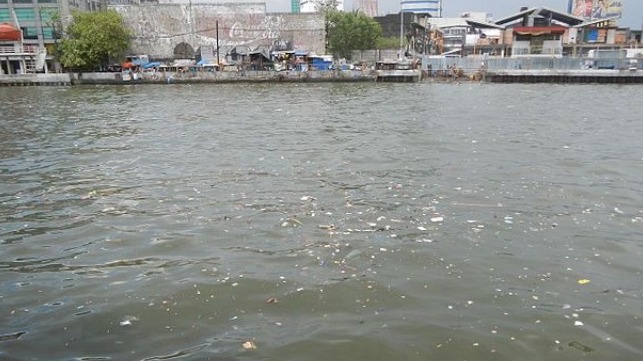Startup Aims to Turn Waterborne Plastic Waste Into Fuel

A UK-based startup is looking to solve two environmental problems with one solution, pulling plastic trash from waterways - where it would normally wind up in the ocean - and turning it into a fuel for ships.
Plastic-to-fuel startup Clean Planet Energy has partnered with riverine waste NGO Riverrecycle to build out a combined floating debris to fuel value chain. Riverrecycle is already running offices in seven countries, including Indonesia and the Philippines, where the project will begin. It has won funding from the ICTSI Foundation to begin removal of plastic litter from Manila's Pasig River, and that work is already under way. Clean Planet Energy will complement its efforts with the construction of a plastic-to-fuel plant in Manila.
"Both Riverrecycle and Clean Planet Energy hold advanced and complimentary technologies which together can help reduce these problems," said Clean Planet Energy CEO Bertie Stephens. "Riverrecycle’s technology will remove difficult plastics from the environment which would otherwise end up in our oceans, and by delivering this to our ecoPlants we can convert these plastics into ultra-clean fuels that can replace dirty fossil fuels in transport vessels (such as planes and ships) that have no other alternative means of power."

that matters most
Get the latest maritime news delivered to your inbox daily.
Clean Planet's ecoPlant uses patented pyrolysis and oil-upgrading technology to convert waste plastics into clean fuels. The fuels produced can be used as a direct replacement in fossil-fuel engines, and the company estimates that it reduces net CO2 emissions by about 75 percent. The prospective plant design would consume up to 60 tonnes of shredded plastic per day. The plastic is heated in an oxygen-free environment to high temperatures, causing it to break down into smaller molecules that can be refined into liquid, solid and gaseous products. The solid can be used in construction applications, the gas would be burned to power the plant, and the fuel output would be used as a drop-in replacement for crude oil-based fuels. The firm says that it has two facilities under construction in the UK, with seven more planned.
Plastic pyrolysis to bunker-fuel processes have been trialed before. In 2016, UK-based Recycling Technologies partnered with Innovate UK and an international marine insurer to test out a plastic-based fuel called Plaxx in a marine diesel engine. Plaxx, a wax-like product of the depolymerization of plastic, is a solid at room temperature and a liquid at 160 F; today, its maker markets it as a chemical feedstock only.
